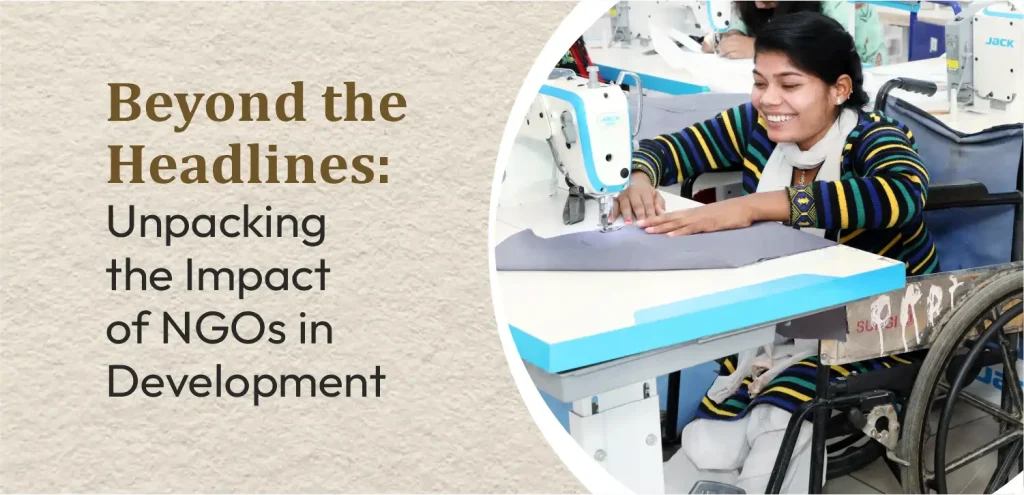Unpacking the Impact of NGOs in Development
In bustling cities, known for their skyscrapers and economic progress, the work of Non-Governmental Organisations (NGOs) often happens quietly behind the scenes. Yet these nonprofits are vital contributors to societal development—offering support, empowerment, and hope to people who might otherwise be overlooked.
The Backbone of Community Support
NGOs play a crucial role in strengthening communities. They serve those in need by offering elder care, education, mental health counselling, and rehabilitation for the differently-abled. One such example is Narayan Seva Sansthan, an organisation committed to serving the underprivileged and differently-abled with medical aid, surgeries, and skill-building programs.
These NGOs work at the grassroots level, ensuring that even the most marginalised individuals have access to essential services. Their efforts not only help people live better lives but also create a more inclusive society overall.
Filling the Gaps in Public Policy
Despite wealth and development, economic inequality remains a significant issue. Many social challenges are not fully addressed by government initiatives. That’s where NGOs step in — offering practical solutions, direct aid, and community-based programs that bridge these policy gaps.
Whether it’s helping children with disabilities, feeding the homeless, or providing healthcare to low-income families, NGOs act as a safety net where the system falls short. They also advocate for systemic changes, ensuring that the voices of the vulnerable are heard in public discourse.
Humanitarian Response During Crises
In times of crisis, NGOs have repeatedly proven to be effective and responsive. During the COVID-19 pandemic, many nonprofits quickly mobilised to provide food, masks, hygiene supplies, and medical assistance.
Narayan Seva Sansthan was one of the organisations actively involved in distributing relief kits, raising awareness, and supporting the differently-abled during lockdowns. Their swift action and community trust allowed them to make a real impact when it was most needed.
Empowering the Differently-Abled
One of the most significant contributions NGOs make is in empowering people with disabilities. Many organisations in world offer more than medical help—they provide tools for independence, such as artificial limbs, mobility aids, and skill development programs.
Narayan Seva Sansthan takes this mission seriously. They host para-sports events, provide free surgeries, and offer vocational training, helping differently-abled individuals live with dignity and confidence. These efforts not only transform lives but also inspire society to embrace inclusivity.
Building a Culture of Giving
Despite fast-paced urban lifestyles, there is a growing community of volunteers and donors. NGOs play a key role in fostering a culture of compassion and social responsibility. They offer ways for people to contribute through time, resources, or expertise.
By engaging with the community, NGOs help instill values of empathy, cooperation, and civic participation. This shift is essential for long-term development and builds a stronger, more connected society.
Innovation and Sustainability in the NGO Sector
Looking forward, many NGOs are embracing technology and innovation. From online fundraising platforms to telehealth services, nonprofits are finding new ways to reach and support beneficiaries. Collaborations with businesses under Corporate Social Responsibility (CSR) programs are also creating sustainable funding models.
Some NGOs are even expanding their work regionally by partnering with international charities and donors, positioning themselves as humanitarian hubs in the region.
Conclusion
Behind the headlines, NGOs are making a deep and lasting impact. They are not only providing services but transforming lives, advocating for justice, and shaping a better future for all.
Their role in societal development is indispensable—and as citizens, donors, and volunteers, we all have a part to play in supporting their mission. True development is not only about infrastructure and economy—it is about compassion, inclusion, and the collective will to uplift every member of society.








